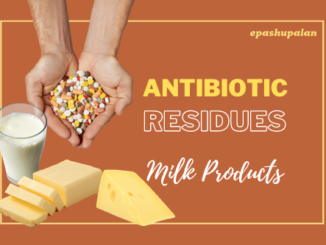Muscle mass maintenance requires a balance between muscle protein synthesis and muscle protein breakdown and gain in muscle can occur only when the synthesis exceeds the breakdown. To improve muscle mass and strength consuming appropriate amount of protein is necessary. A well-rounded physical activity also helps in maintaining or improving muscular fitness. Low muscle mass and strength has been associated with increased morbidity, poorer quality of life. Protein contains essential and non-essential amino acid. Essential amino acids are those that cannot be synthesize by the body and thus, must come from the food. Protein can be found in animal-based food (meat, egg and milk etc.) and plant-based food (legumes, nuts, grain and seeds etc.
Animal protein has high protein quality, which is usually considered superior to plant protein for building muscle mass as shown by research. But it increases harm to the environment as increasing demands for animal protein and animal faming is more resource intensive with higher greenhouse gas emission. Evidence also suggests that animal-based protein especially red meat and processed meat increased the risk of heart disease, diabetes, cancer and premature death etc. There has been an encouragement to replace animal protein, particularly red meat with plant protein to decrease risk of cardiovascular diseases, and it is also promoted as its adverse effect on the environment is much lesser than animal-based food production.

Research suggest that consumption of animal protein has favorable effect on absolute lean mass, and a significant increase in percent lean mass in comparison to plant protein. The difference in lean mass were mainly found in adult below 50 years, while there is no difference in older adults above 50 years. Overall, an increase in absolute lean mass and percent lean mass can be obtain by both plant and animal protein, the only difference is a more substantial gain is given by animal protein.
Quantitative studies reveal a favoring effect of animal protein both in absolute and lean mass which may be attributed to its protein quality. Protein quality is dependent on its amino acid composition, digestibility, absorption which were utilized to meet the body needs. Animal protein provides all the essential amino acid in sufficient quantity and in a higher content and better absorption rates. While in plant protein, deficiencies of some specific amino acid were found. Even the most complete essential amino acid sources of plant protein like buckwheat and quinoa have some of the amino acid so less that they are negligible. However adequate protein intake can be achieved by taking a variety of plant sources while ensuring all essential amino acids are present.
The protein source effects on muscle strength were inconsistent and studies shows that protein source have no effect on the changes in strength outcome. Although animal protein may improve lean mass in younger adults, lean mass gain doesn’t necessarily mean improvement in muscle strength. Both plant protein and animal protein provide significant increase in muscle strength. However, the daily protein requirement is higher in older adult to maintain muscle, and in resistance exercise training to increase muscle mass.
Consumption of animal-based protein requires consumption of all the other components of the food. Even though animal-based protein may have its superiority, its other components can make a difference for health. So, eating a healthy source of protein will help in decreasing the risk of several diseases.
References






Be the first to comment